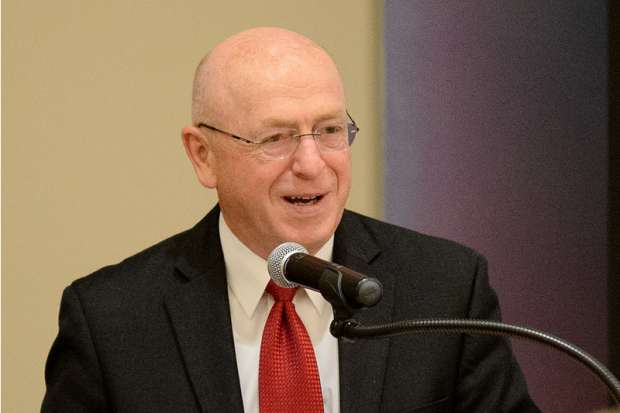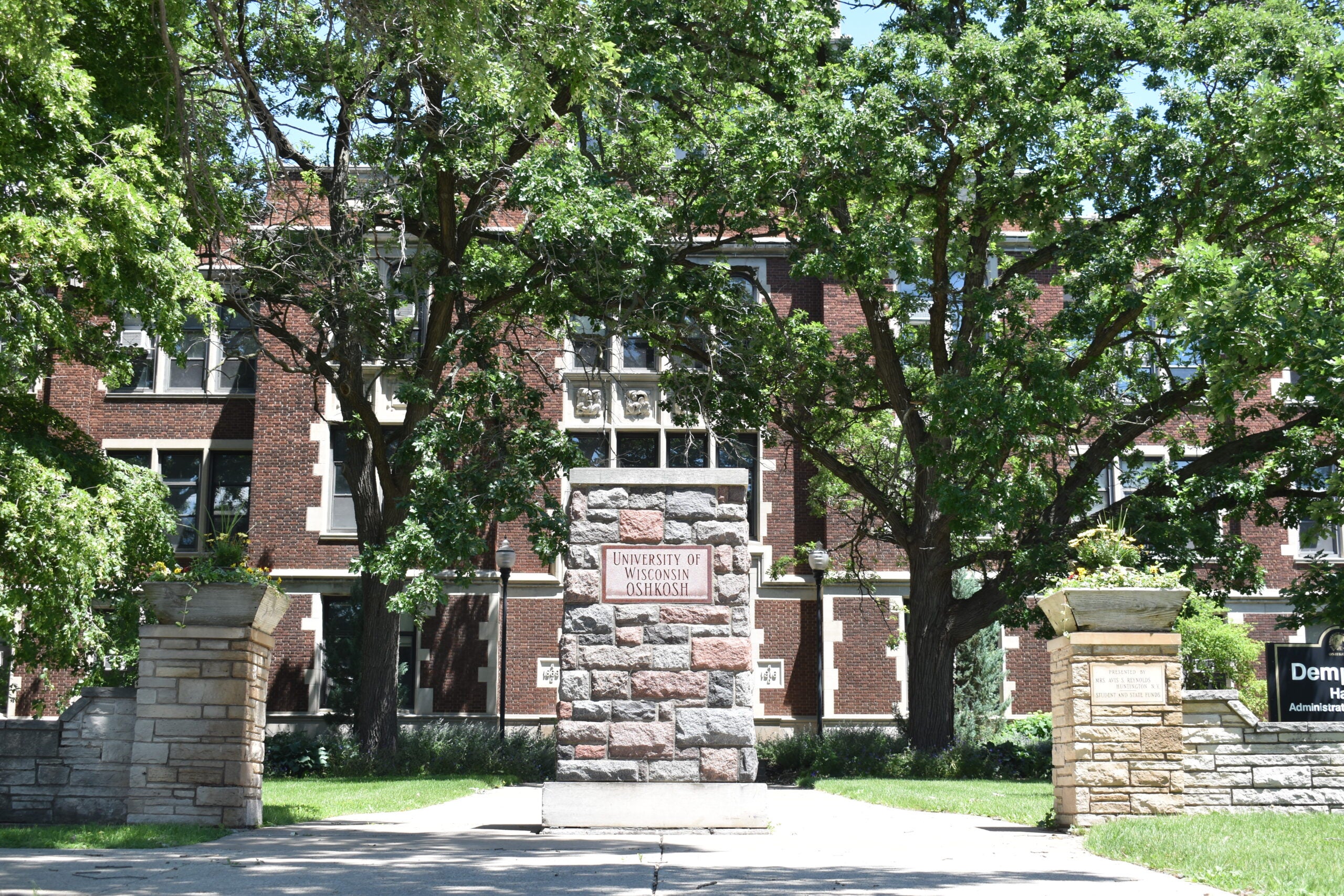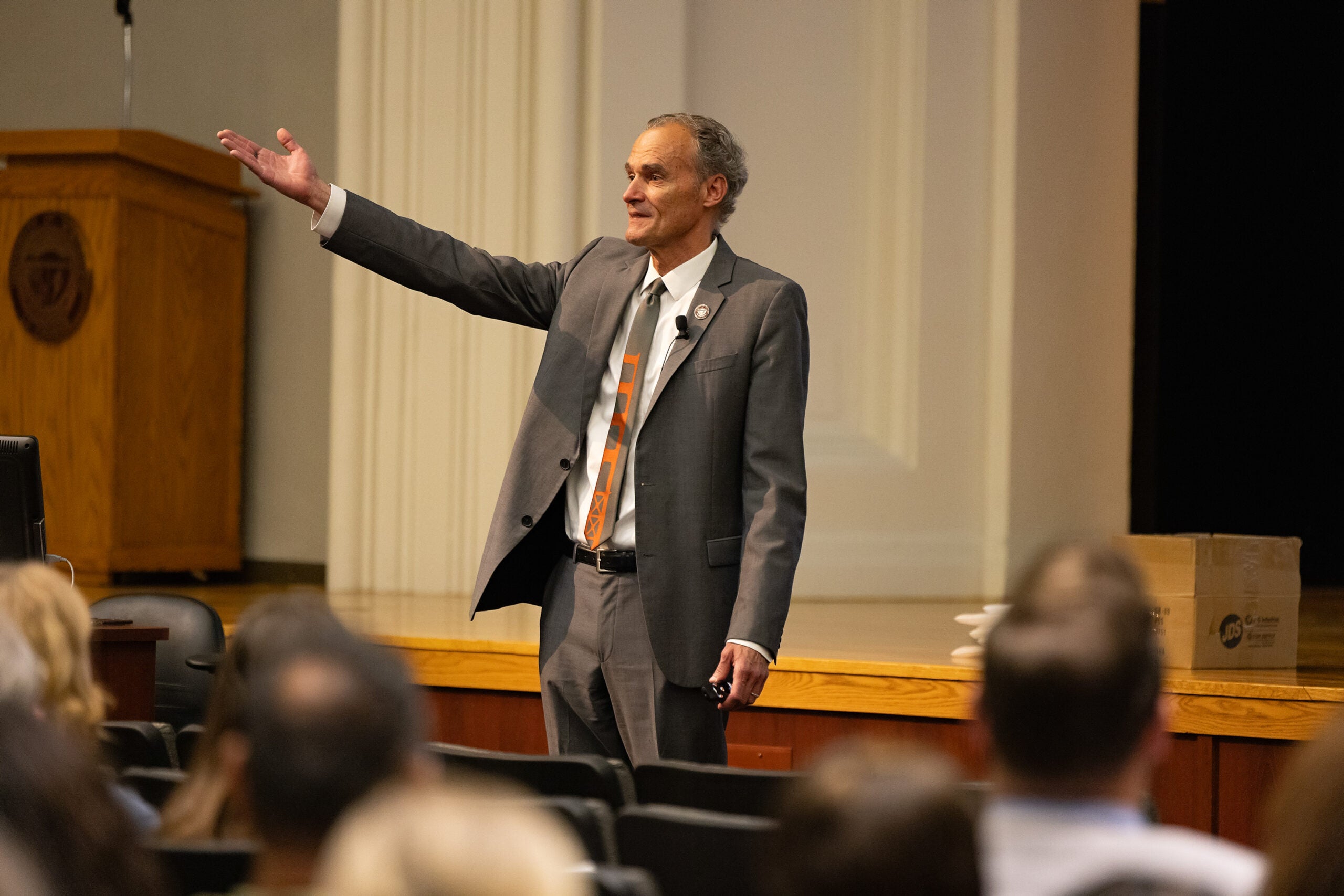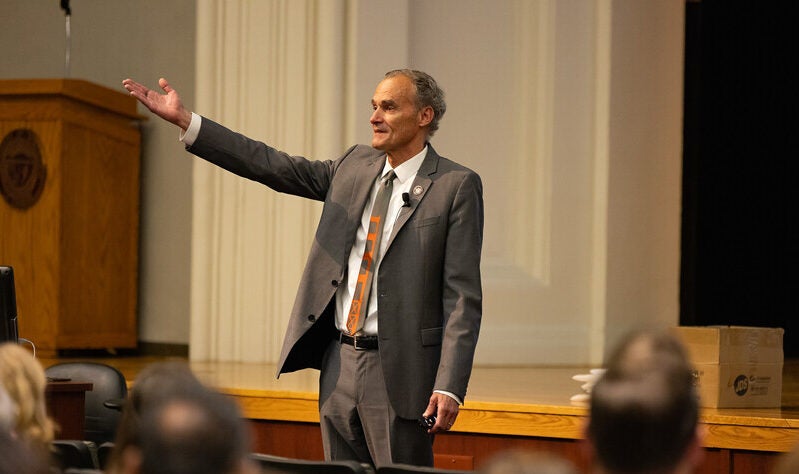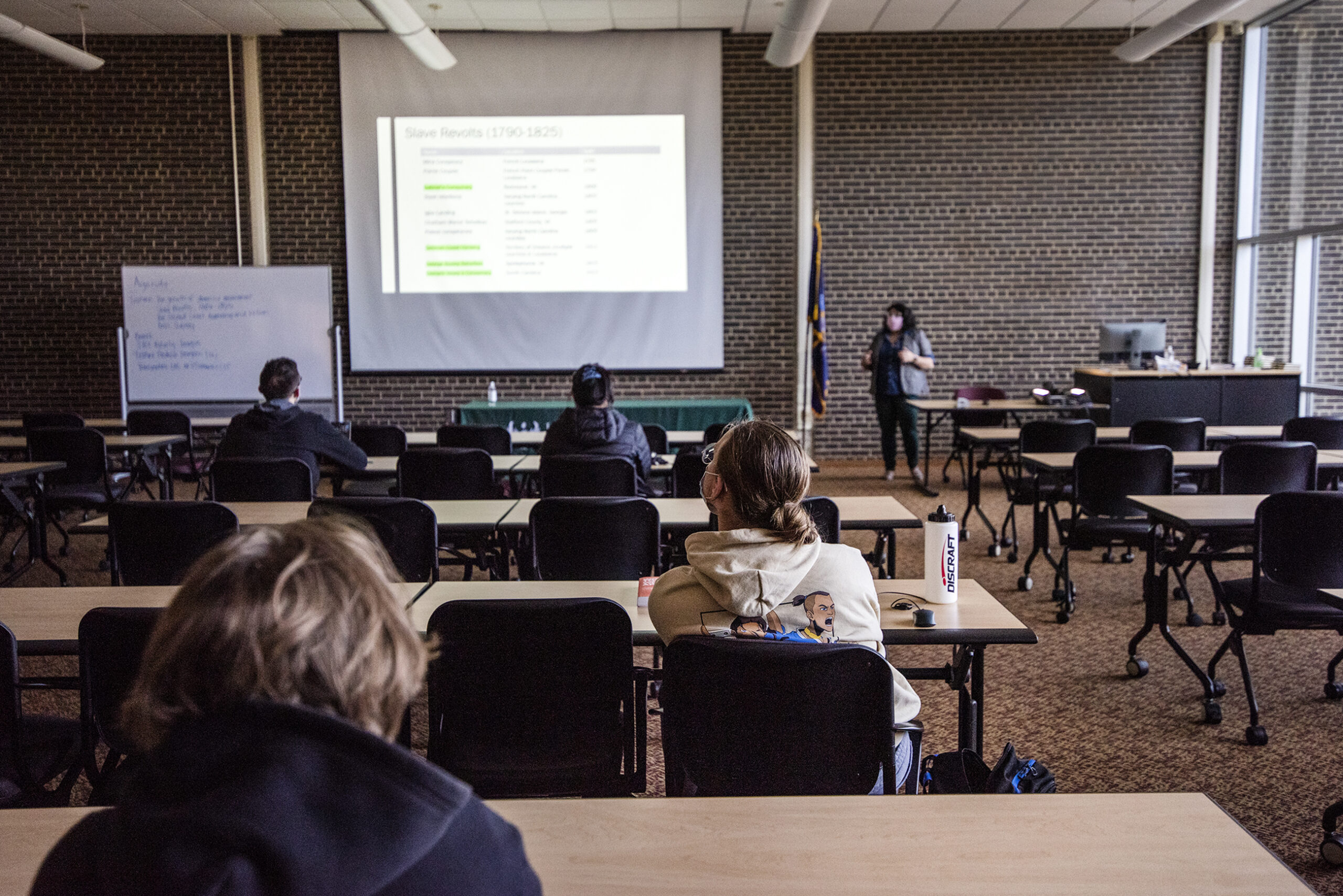Faculty and students have criticized UW System President Ray Cross for not consulting with them in a plan to merge two-year campuses with four-year universities. However, Cross said Wednesday that system leaders had to act quickly to avoid the closure of several campuses.
UW System President Ray Cross said he believes strongly in shared governance, but he feels the responsibilities for administration under that process and those of faculty, staff and students aren’t clearly understood.
“I think that there’s confusion about who should be involved in what and how. That’s understandable,” he said. “I think that that’s something we need to work on with faculty, staff and students.”
Stay informed on the latest news
Sign up for WPR’s email newsletter.
Cross said administration officials need to have conversations about shared governance and the role of everyone involved.
“I think it would be wise for us to have some conversations around that and how we do that well,” he said. “I would argue that shared governance has, in some ways, equated decisions at all levels on all issues, and that’s not, in my mind, appropriate.”
The lack of consultation with faculty, staff and students over restructuring resulted in a vote of no confidence from UW-Stout’s Student Senate last week.
“The bold actions President Cross has taken without consultation and comments he has made regarding shared governance partners has been irrevocably ruinous and is completely unacceptable,” said Alex Vernon, Stout Student Association president, in a statement. “We are seeking President Cross to resign from his position or for him to recommit himself to follow the UW System mission and (Wisconsin) state statute by facilitating effective partnerships with university governance groups.”
In addition, the executive committee for the UW-Madison Chapter of the American Association of University Professors recently wrote an open letter to the UW System president to express concerns over what they called Cross’ “willful disregard” for shared governance.
Committee Member David Vanness, a UW-Madison professor, agreed with Cross that it can be difficult to draw the lines of responsibilities because universities are large organizations with many moving parts and stakeholders.
“I think to some large degree a lot of the problems with shared governance being misunderstood have arisen in this time of austerity, time of budget cuts and groups feeling like they have to protect turf. I understand that. That’s reasonable,” said Vanness. “That does not mean that we should throw the baby out with the bath water and abandon shared governance because so-called tough decisions have to be made.”
UW System’s president noted that faculty have a responsibility over issues related to curriculum, instruction and student enrollment.
“When enrollment drops and they are indifferent to that and it’s dropped as precipitously as it has in some of these campuses, you have to ask the question, how long do we wait before faculty fully engage in this issue or do they function simply to avoid those kind of difficult questions?” Cross said. “I think we need to have a conversation about all those issues. But, at the same time, had we not acted quickly on this, I fear we would have had to close a few campuses.”
Cross said there are three or four campuses that have experienced significant declines in enrollment over the last several years, but he declined to name them.
Vanness argued that faculty and staff may have been better equipped to address enrollment challenges if they had been included in the early stages of the reorganization, including a move to regionalize services a couple years ago.
“We could say, yes, we’re in a challenging situation now but maybe talking with faculty and staff at the campuses two years ago, people would realize we’re going to run into an enrollment problem if you had regionalized enrollment support services,” he said.
Cross said there were a number of conversations long before restructuring over enrollment declines and financial decisions. He said collaboration with faculty has been ongoing.
“I think there needs to be a broader conversation with faculty particularly as it relates to system and shared governance – not just the institutions,” he said.
Cross said they want to know how they can engage effectively with faculty. Vanness said better decisions tend to be made when people who are impacted are involved in the process.
Editor’s Note: Wisconsin Public Radio is a service of the University of Wisconsin-Extension and the Wisconsin Educational Communications Board.
Wisconsin Public Radio, © Copyright 2024, Board of Regents of the University of Wisconsin System and Wisconsin Educational Communications Board.

